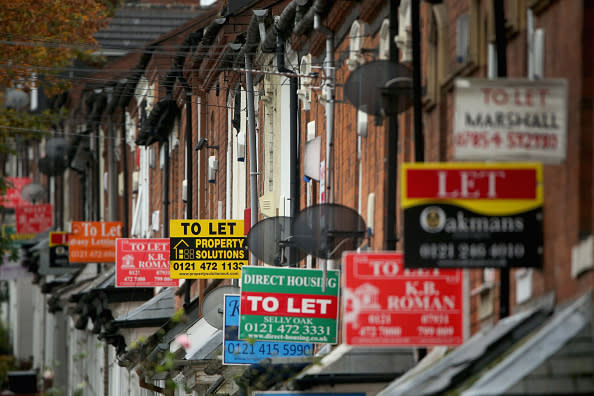House prices show stability despite higher interest rates, but rents continue to surge

According to new government figures, average price house prices were £2,000 cheaper in January compared to the same period the year before.
The latest report from the Land Registry on the state of the property market showed that during the month, property prices decreased by 0.6 per cent to £282k, with London experiencing a 3.9 per cent fall, the biggest out of any region.
At the start of the year, houses in the capital cost £517k, remaining the most expensive area in Britain.
Separately, the Office for National Statistics said on Wednesday that average UK private rents jumped 9 per cent in the 12 months to February, up from 8.5 per cent in January. That was the highest rate of growth since the agency began collecting data in January 2015.
Figures from the Land Registry are generally considered a more reliable indicator of house price performance as they record the exact price paid for properties across the country. Other house price indices, such as Rightmove’s index, use asking prices.
The figures come as house prices are expected to fall by around three per cent this year, before recovering the following year and rising by around 3.5 per cent.
But properties across the UK still remain around £40k more expensive than before the pandemic.
Tom Bill, head of UK residential research at Knight Frank, said: “Although UK house prices are heading back into positive territory, the recovery is slower and more inconsistent than expected two months ago.
“Mixed signals on inflation mean rate cut expectations have cooled, mortgage costs have crept up and downwards pressure on house prices has increased.”
He added: “Based on current evidence, buyers can expect a rate cut in the summer rather than the spring although mortgage rates may fall slightly in coming months if core inflation comes under control.”
Prospective buyers in the UK have had a torrid time over the past three years,
First facing the fallout from Liz Truss’s mini-budget and then lenders raising mortgage deals in response to interest rate hikes from the central bank.
Sentiment in the housing market has improved, helped largely by cooling inflation, which has now fallen to its lowest level in nearly two and a half years.
Anthony Codling, managing director at RBC Capital Markets, said: “We view house prices as stable rather than rising or falling and stable is just what the housing market needs when there are so many other moving parts.
“Housebuilders, estate agents and homebuyers and sellers alike can all work and plan ahead with stable pricing.”
He added:“The crash in house prices so many were predicting seems ever further behind us and there is a sense that the housing market is just getting on with life, it doesn’t need any help, but it probably wouldn’t turn down any help if offered.”

 Yahoo Finance
Yahoo Finance 